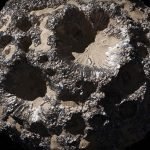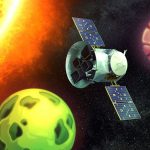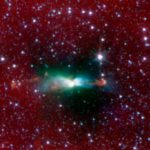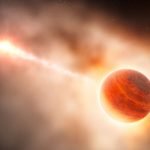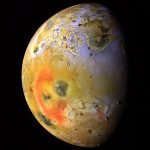Scientists find the fastest-growing black hole in the past nine billion years
The fastest-growing black hole of the last nine billion years has been discovered by an international team led by astronomers at The Australian National...
This weird star produced the fastest nova on record
Astronomers are buzzing after observing the fastest nova ever recorded.
The unusual event drew scientists’ attention to an even more unusual star.
As they study it,...
Asteroid Psyche maps reveal an ancient world of metal and rock
Later this year, NASA is set to launch a probe the size of a tennis court to the asteroid belt, a region between the...
Thousands of galaxies shine in ultraviolet light in new Hubble image
This may help reveal how the first stars ended the universe's dark ages.
A new image from NASA's Hubble Space Telescope is brimming with distant...
Astronomers discover a multiplanet system nearby
Just 33 light years from Earth, the system appears to host two rocky, Earth-sized planets.
Astronomers at MIT and elsewhere have discovered a new multiplanet...
Traveling stars can form binary star system, shows study
From a zoomed out, distant view, star-forming cloud L483 appears normal.
But when a Northwestern University-led team of astrophysicists zoomed in closer and closer, things...
ESA’s Gaia sees strange stars in most detailed Milky Way survey to date
Gaia is ESA's mission to create the most accurate and complete multi-dimensional map of the Milky Way.
This allows astronomers to reconstruct our home galaxy's...
Rare rapid-fire fast radio burst reveals hot space between galaxies
A rare and persistent rapid-fire fast radio burst source – sending out an occasional and informative cosmic ping from more than 3.5 billion light...
Jupiter is up to 9% rock and metal, which means it ate a lot...
Jupiter is composed almost entirely of hydrogen and helium.
The amounts of each closely conform to the theoretical quantities in the primordial solar nebula. But...
New study unravels the mysterious dunes on Jupiter’s moon, lo
Scientists have known about dune-like structures on Jupiter’s volcanically active moon, Io, for some time.
However, they have been unable to reconcile how a planetary...



